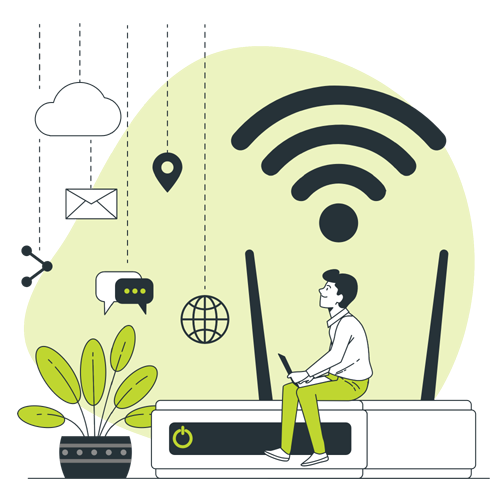Networking is all about devices i.e routers, switches, firewalls, IPS, IDS etc. They are the devices that connect everything with each other and transfer the data packets securely from one point to another.
Routers and switches are network devices used to route the traffic from one path to another. There can’t be smart network without a router or a switch as they help in transferring the data packets and acknowledge. Responsible for the same task, routers and switches are different in so many ways. The role of Routers and aggregation switches in the network infrastructures is critically important and manufacturers are racing to include innovative hardware and software features into their products.
What are routers?
Routers are the smartest of all network devices, starting from the 4 port broadband devices available everywhere to Industrial strengths Internet provider. The router helps you connect multiple devices to the Internet, and connect the devices to each other. Also, you can use routers to create local networks of devices for example in campus library, events etc
Routers are similar to switches but instead of connecting only devices within a network, it can connect networks. Routers operate on the layer 3 i.e. Network Layer of the OSI Model of communication-making it capable of sending data packets across networks using the logical address (IP address).Routers also act as a Firewall by blocking malicious intrusions from the Internet to the networks keeping them safe.
With the help of routers Yash infosystems can provide secure remote access for mobile workers who need to communicate with other employees by reducing the expenditure costs and act as a fast and reliable networking setup.


What are Switches?
The switch is a network device which is very similar to hub but is smarter than it. Switches work on layer 2 that is Data Link Layer of OSI Model. They are responsible for the transmission of data packets from one device to another within the network on the basis of MAC address.
Switches facilitate the sharing of resources by connecting together all the devices, including computers, printers, and servers, in a small business network. Switches work on a full duplex mode for data transmission, that is, sending and receiving of data can take place simultaneously.
Switches are extensively used for customization, manage network traffic. The different types of switches in networking all offer distinct advantages. We guide you to choose and create a network that can accommodate all of your devices and grow as your networking needs expand.
There are many Enterprise router vendors some of the reputed brands we are partnered with Cisco enterprise routers, Juniper routers, HP enterprise router, Aruba router & DELL routers.
Cisco
Cisco Systems, one of the top networking companies in the world, offers routers, switches, and other network products. Cisco Enterprise Routers and Switching can change your network to become more protected with the high-security protocol.
Juniper Networks
Juniper holds the third largest market share for routers and switches used by Internet Service Providers (ISP). Some of their products include routers, switches, network security products, network management software, and IT security products.
HP
HPE (Hewlett Packard Enterprise) helps customers to implement a wide range of technology to obtain an infrastructure that is cloud and mobile-friendly. HPE Model Routers are high-performance routers, with devices routing up to 1MBPS. MSR routers are designed for featured routing, switching, high security and offering without any additional licenses.
Connect Yash Infosystems
Choosing the vendor is the beginning process, then Yash infosystems will help you in installation, setup and maintenance of enterprise routers and switches. Buying the best network switches and routers includes ensuring the best network performance.
